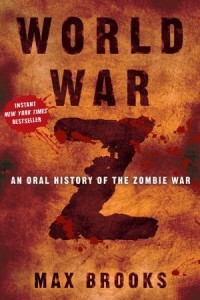Jessica Prentice created the word “locavore” to mean one who eats locally, but I propose a broader meaning—one who consumes locally. The Latin roots support this (“loca” is related to “locus” or “place” and “vore” means “eat” but also “devour”). Because I devour mostly books, I wanted to look at the benefits of reading locally using Dora: A Headcase by Lidia Yuknavitch and Hotel on the Corner of Bitter and Sweet by Jamie Ford as examples. Both books are set in Seattle where I make my home.
First of all, let me say that I’m unusually blessed living in Seattle. Other cities star more frequently in novels (New York and Paris come to mind), but something about Seattle—maybe because it’s smaller or because I feel like part of the amazingly rich and diverse literary community here—is more intimate. Or maybe it’s because you have to go out of your way to get here, so (unless you’re writing Twilight) authors usually visit the area to get to know the place before writing about it.
I could have written this post about any number of Seattle authors like Sherman Alexie or GM Ford (both of whom I’ve loved), but these two novels by Northwest authors crossed my path this week and they speak to such different geographies that I want to look at each of them here. So we’re on the same page, when I say geography, I mean the location and also the people who affect (and are affected by) the place.
Dora: A Headcase by Lidia Yuknavitch
 Nearly every review you read about Dora: A Headcase begins with some version of the following phrase, “contemporary coming-of-age story based on Freud’s famous case study.” If I had known this, my reading of the book might have been more nuanced. But I didn’t. I went to the store in search of Yuknavitch’s memoir, The Chronology of Water, which I was unable to find. What they did have were several copies of Dora. I like the serendipity of discovering a book, so I bought and read this one without considering the back cover or the introduction. I may have missed a dimension of the book in doing so, but it didn’t dampen my enjoyment.
Nearly every review you read about Dora: A Headcase begins with some version of the following phrase, “contemporary coming-of-age story based on Freud’s famous case study.” If I had known this, my reading of the book might have been more nuanced. But I didn’t. I went to the store in search of Yuknavitch’s memoir, The Chronology of Water, which I was unable to find. What they did have were several copies of Dora. I like the serendipity of discovering a book, so I bought and read this one without considering the back cover or the introduction. I may have missed a dimension of the book in doing so, but it didn’t dampen my enjoyment.
Yuknavitch’s characters capture the spirit of Seattle. Smart and angsty teen Dora showed me just how active a protagonist can be as she teams up with the wild gang of Obsidian, Ave Maria, and Little Teena to rage against convention and authority. I’ve seen people just like each of them on Capitol Hill. Dora has that well-to-do hipster with an angry edge vibe that is uniquely Seattle and the others are equally authentic. Dora’s uptight parents and more-rigid-than-he-ever-thought-he’d-be Dr. Siggy were also familiar and well-drawn, and it was easy to imagine them pushing carts through Trader Joe’s on Queen Anne.
Although the specifics of some locations in the city were treated with creative license, the essence of the neighborhoods is well portrayed. And when the action of the book moves to suburban Renton, the characters stand in even starker contrast to the landscape. I won’t spoil the story, but the shift in setting adds a whole new, very important, dimension to the book—a peek at what all us crazy city folk look like mere miles beyond our border.
The book is a very wild ride and I’d recommend it for those occasions when you are looking for a (legal) way to indulge in revenge.
Hotel on the Corner of Bitter and Sweet by Jamie Ford
 Jamie Ford’s Hotel on the Corner of Bitter and Sweet showcases a very different but equally real Seattle. Set primarily in the International District during World War II, the book tells the story of Chinese-American Henry and Japanese-American Keiko and a love that could not be.
Jamie Ford’s Hotel on the Corner of Bitter and Sweet showcases a very different but equally real Seattle. Set primarily in the International District during World War II, the book tells the story of Chinese-American Henry and Japanese-American Keiko and a love that could not be.
The layered complexities of racial relations that Ford presents rival Sherman Alexie’s Indian Killer, though this is a very different book. The detailed scenes revealed an aspect of Seattle history I’ve managed to mostly ignore until now. I’ve known about the Japanese internment for a long time, but only in an abstract way. Ford made the events and their impact real for me, even if the love story was a bit pat.
I have always been interested in World War II, but I usually read about the Holocaust and the European campaign. This book helped me put names and faces with experiences—wondering about the Moriguchi family (owners of Uwajimaya, which was in Tacoma until after the war) and what their life must have been like during the war.
I came away from this book with a deeper appreciation of Pioneer Square where I work and the International District where I sometimes shop. In any city, we are surrounded by more strangers than friends and books can help us understand a place even if we can never meet all of its characters. This is a great book to pick up if you want to find out more about events that rocked Seattle during an era that many people are still not talking about. It will make your next visit to the Wing Luke Museum (or even through the bus tunnel) all the richer.
My Writing
Geography was very important to me in writing my first book, Polska, 1994, as I tried to understand the people of Poland. My characters are shaped by their location in the smaller city of Toruń just as Dora would have been a very different book if it was set in Ballard rather than Capitol Hill, and Hotel on the Corner of Bitter and Sweet needed to be set in the International District.
Perhaps that’s why my next book (a work in progress) feels unmoored at the moment—it currently has no setting and is instead entirely about the characters in relation to each other. I like the amorphous nature this gives the characters, but it is also far outside my comfort zone for them to not have a place that shapes them and which they play against.
I am grateful to both Lidia Yuknavitch and Jamie Ford for reminding me that good stories happen at home, too, and that by devouring local books, I might get that extra layer of enjoyment of learning about my city. Do you read locally? What books would you recommend about your city?
If this review made you want to read either book, pick up a copy of Dora: A Headcase or Hotel at the Corner of Bitter and Sweet from Bookshop.org. Your purchase keeps indie booksellers in business and I receive a commission.
 I’m so excited to finally be reviewing World War Z: An Oral History of the Zombie War by Max Brooks. On Saturday, I watched the piling masses of zombies and Brad Pitt in the preview for the film (on the front of Twilight) and rushed home to steal the book from my husband and start reading. The rest of the weekend was me avoiding everyone (including the aforementioned husband) so I could read, read, read.
I’m so excited to finally be reviewing World War Z: An Oral History of the Zombie War by Max Brooks. On Saturday, I watched the piling masses of zombies and Brad Pitt in the preview for the film (on the front of Twilight) and rushed home to steal the book from my husband and start reading. The rest of the weekend was me avoiding everyone (including the aforementioned husband) so I could read, read, read.